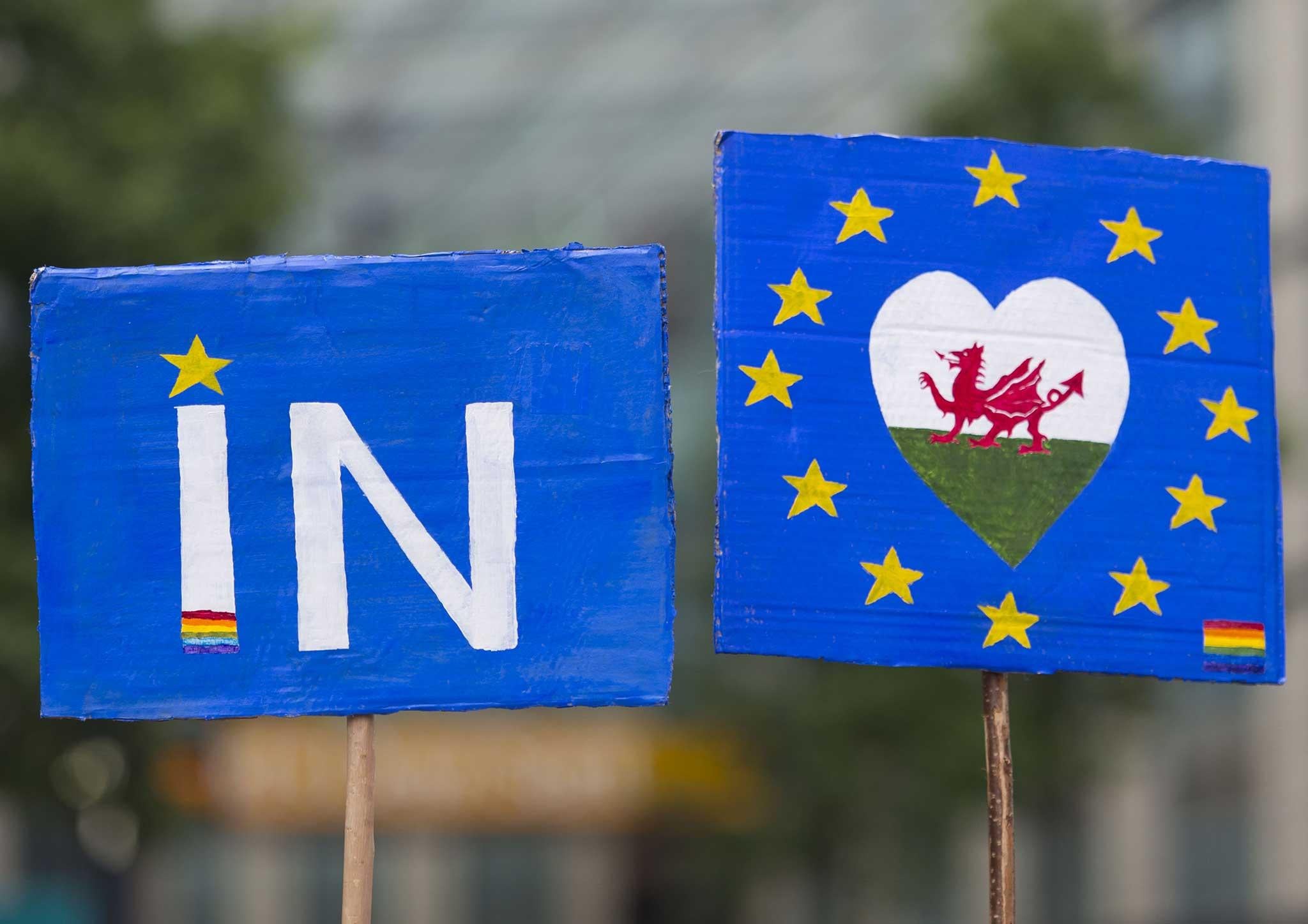Wales told not to expect same level of funding as it got from the EU - despite voting Brexit
Welsh Secretary Alun Cairns will only commit to saying: 'Wales will get its fair share.'

Wales, which voted overwhelmingly to leave the EU, has now been told by the UK Government that it can't automatically expect a Brexit administration to match the level of funding it received from Brussels.
Welsh Secretary Alun Cairns announced in the House of Commons that “Simply replacing what are currently EU funds with another source from Westminster misses the point.”
When pressed by Shadow Welsh Secretary Paul Flynn to “guarantee that Wales will not lose any of the funding that it has now under Brexit,” Mr Cairns would only say: “I can guarantee that Wales will get its fair share.”
His response raises the prospect that in voting to leave, Wales has voted to lose a chunk of the EU money that according to analysis by Cardiff University’s Wales Governance Centre gave it a net annual benefit - (once payments to Brussels were deducted) of £245 million - or about £79 per head.
It also comes after the areas of Wales that benefit most from EU funding voted very strongly to leave.
West Wales and the Valleys had been a particular target of EU Regional Policy funding because it was classed as a “less developed region” where GDP was less than 75 per cent of the EU average.
But every area in the Valleys still voted Leave, with the Brexit share of the vote being as high as 62 per cent in Blaenau Gwent and 56.4 per cent in Merthyr Tydfil.
Mr Cairns seems to have used this to bolster his position, telling MPs on Wednesday: “The EU referendum sent out a number of messages, and those areas that receive most EU funds were the areas, sadly, that voted most strongly to leave the EU. We need to look at models of regional aid in a different way.”
Only five Welsh council areas voted for Remain, compared to the 17 which backed Leave, producing an overall Wales vote of 52.5 per cent in favour of Brexit and 47.5 per cent for staying in the EU.
Brexit reactions – in pictures
Show all 10This was despite the Welsh Government telling voters that since 2007, EU projects have helped 72,700 people into work and created 36,970 jobs.
It was reported that Wales has been given more than £4 billion of European money since 2000, with grants approved between 2007 and 2013 including £79 million for improvements to the A465 Heads of the Valley road and £80 million for town centre improvements in places like Merthyr Tydfil, Pontypridd and Llanelli.
But during the referendum campaign, Andrew RT Davies, the leader of the Welsh Conservatives, insisted: “Wales could be as much as half a billion pounds a year better off if the UK votes to leave the European Union.
“The UK is a massive net contributor to the EU and Wales would be entitled, under the Barnett Formula, to its share of that £9.98 billion ‘Brexit dividend.’ No ifs, no buts.”
After the referendum result became known, Welsh First Minister Carwyn Jones wrote to David Cameron to express his concerns about the impact on jobs and growth if the funding level for Wales was reduced. Mark Drakeford, Finance Secretary in Wales’ Labour-led government, also insisted that “every penny” lost to the Welsh economy in EU funding would need to be replaced by the UK Government.
The refusal of Mr Cairns to guarantee that a Brexit government will match EU funding levels may also cause anxiety in areas that voted to leave the EU despite receiving large sums from Brussels.
The day after Cornwall voted 182,665 to 140,540 for leave despite having received £1 billion of EU aid in the past 15 years, John Pollard,the leader of Cornwall Council announced: “We will be insisting that Cornwall receives investment equal to that provided by the EU programme which has averaged £60m per year over the last ten years.”
“Now that we know the UK will be leaving the EU,” he added, “We will be taking urgent steps to ensure that the UK Government protects Cornwall’s position in any negotiations.”
What might be at stake was suggested by Jonathan Lindsell, the author of a report on industries that benefit from the EU, who in 2014 had said that as well as Cornish farmers and fishermen benefiting from the Common Agricultural Policy and Common Fisheries Policy, the county received structural and convergence funds to support local economic growth and communities.
“If Britain were to leave,” he added, “The Treasury would have to take great care in ensuring its [Cornwall’s] local economy was not crippled as a result.”
Subscribe to Independent Premium to bookmark this article
Want to bookmark your favourite articles and stories to read or reference later? Start your Independent Premium subscription today.

Join our commenting forum
Join thought-provoking conversations, follow other Independent readers and see their replies